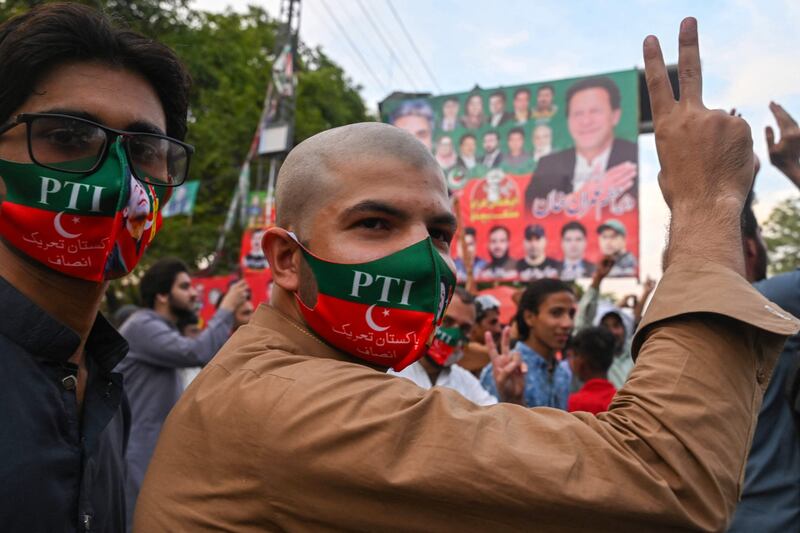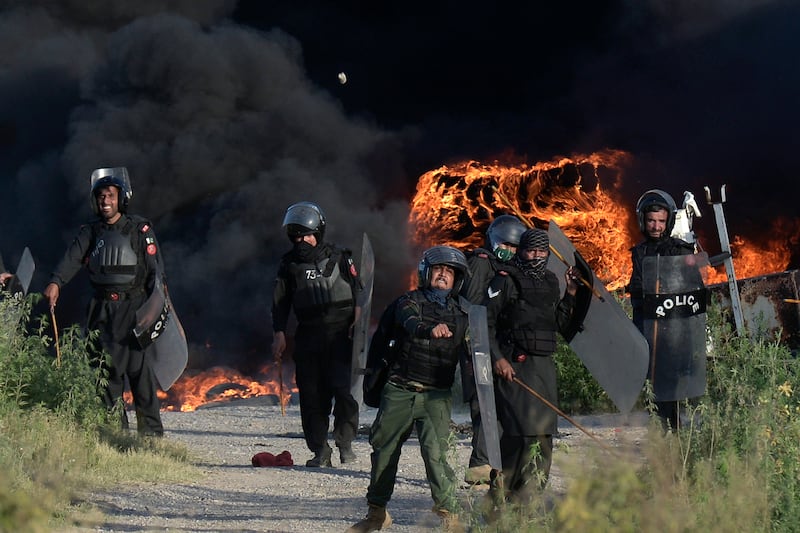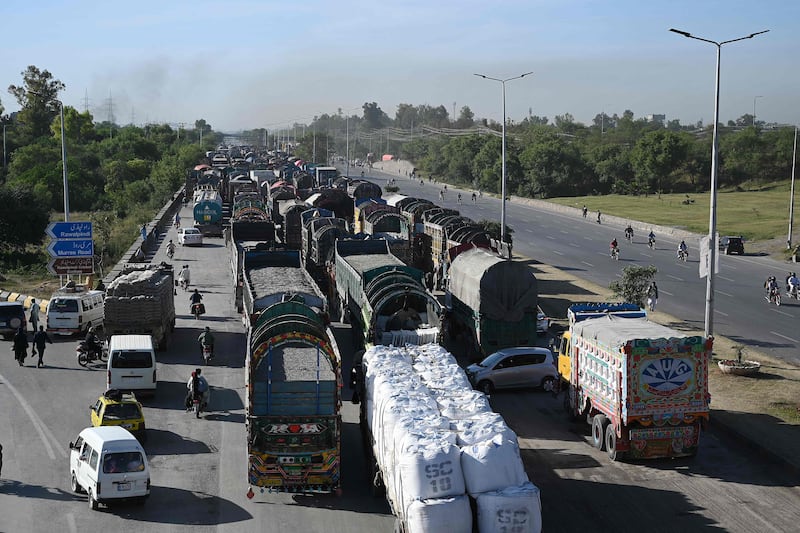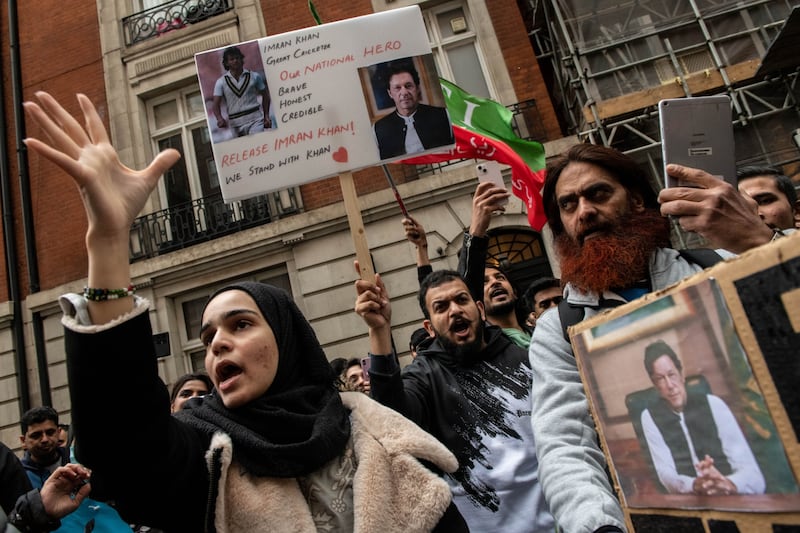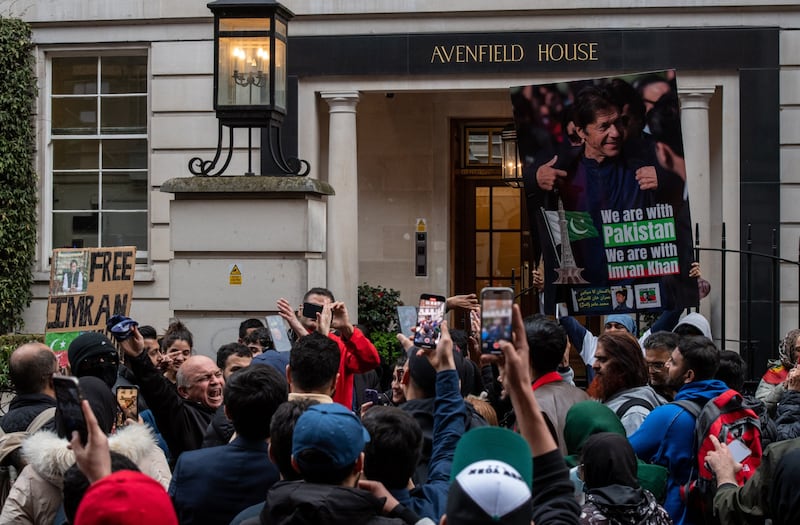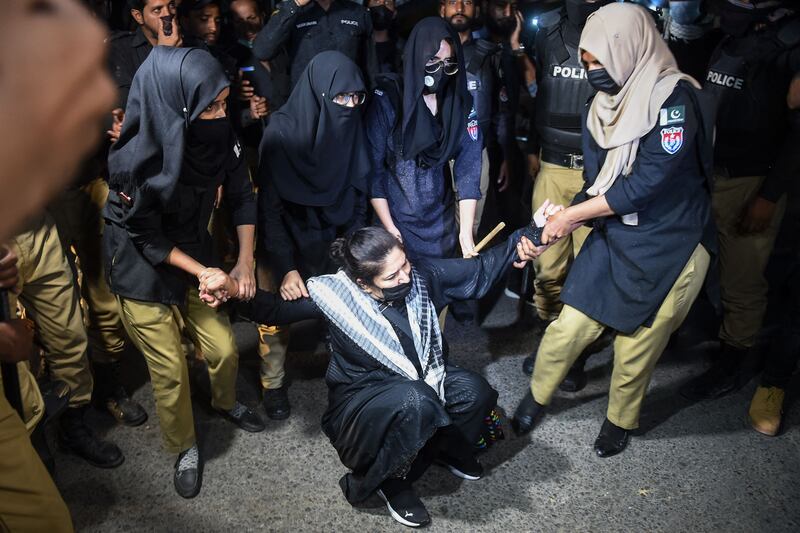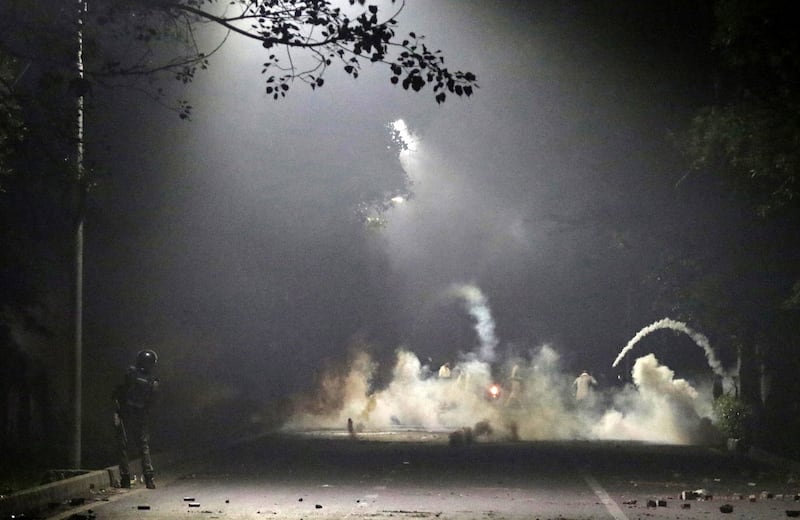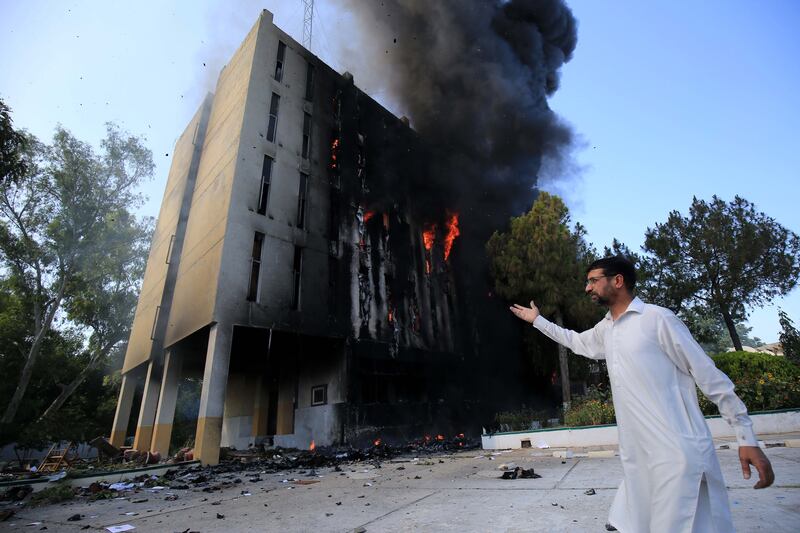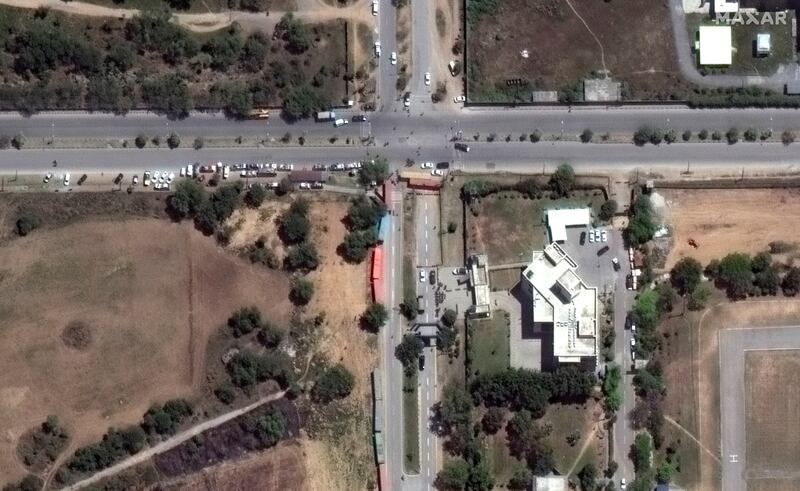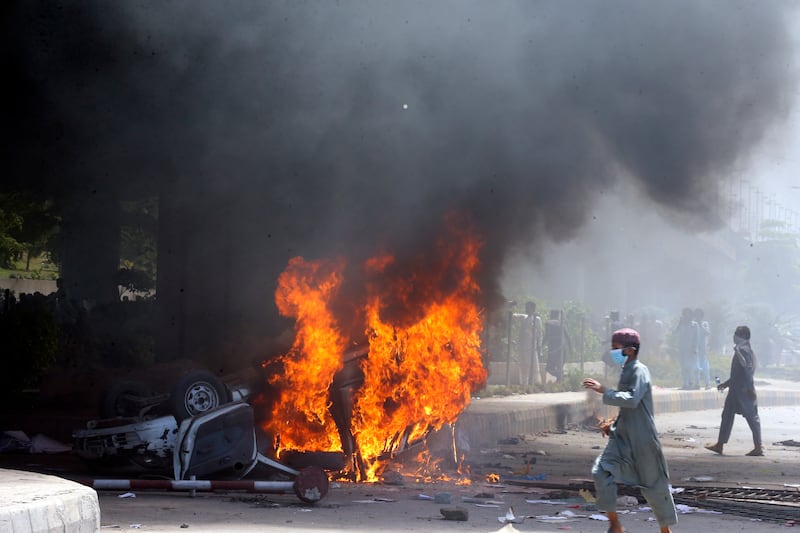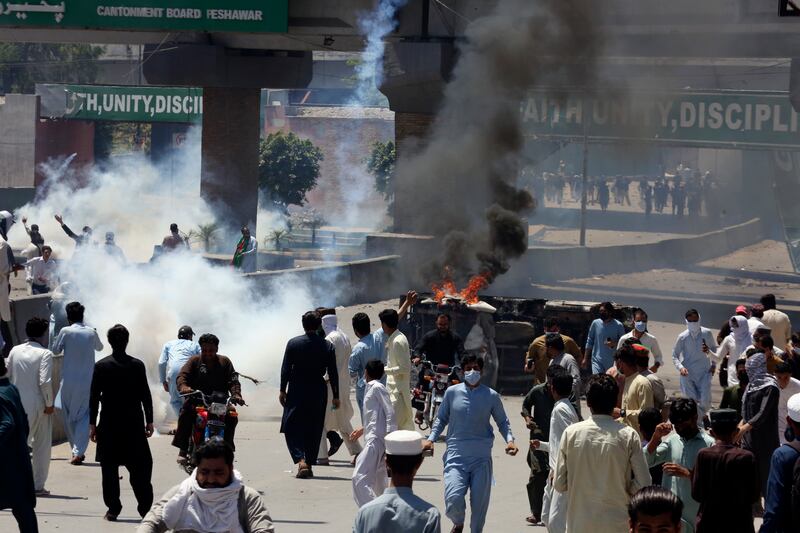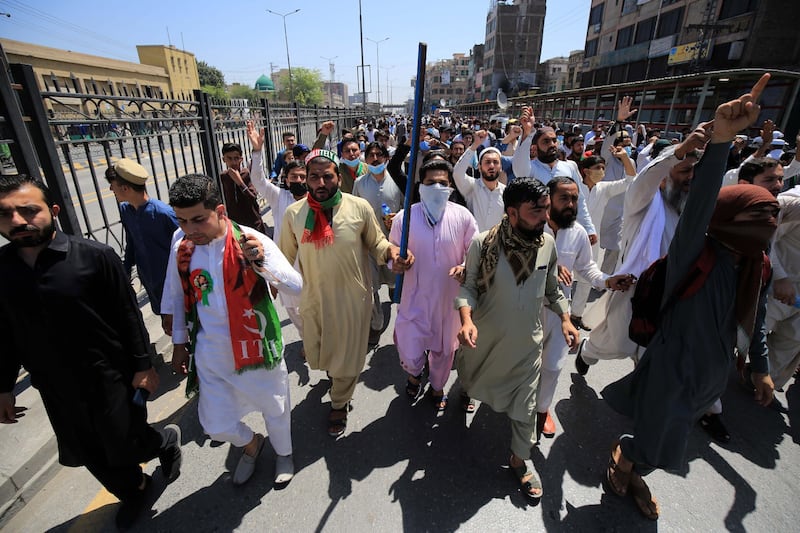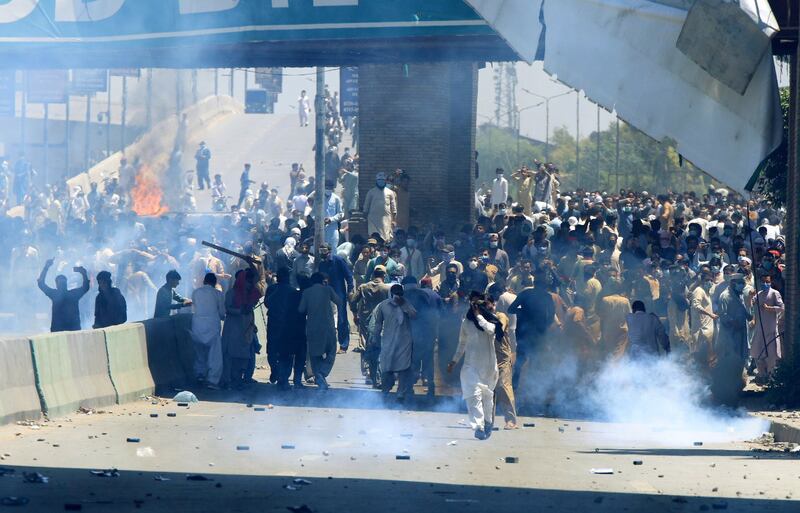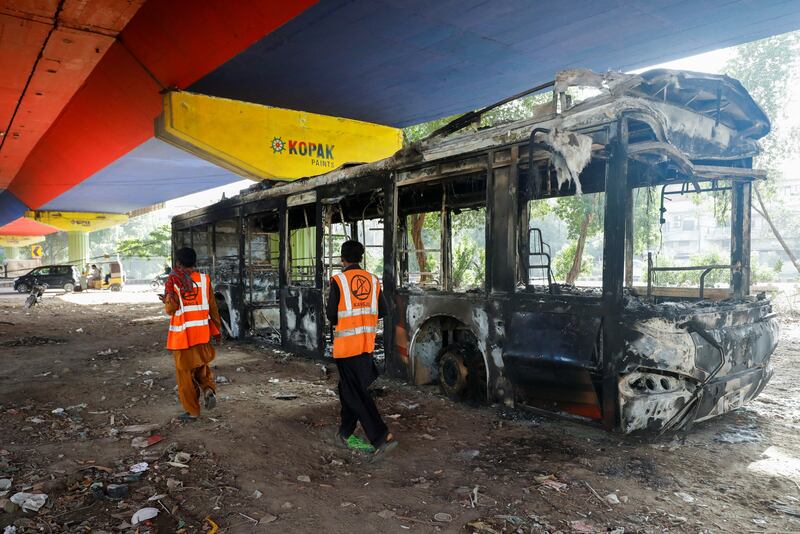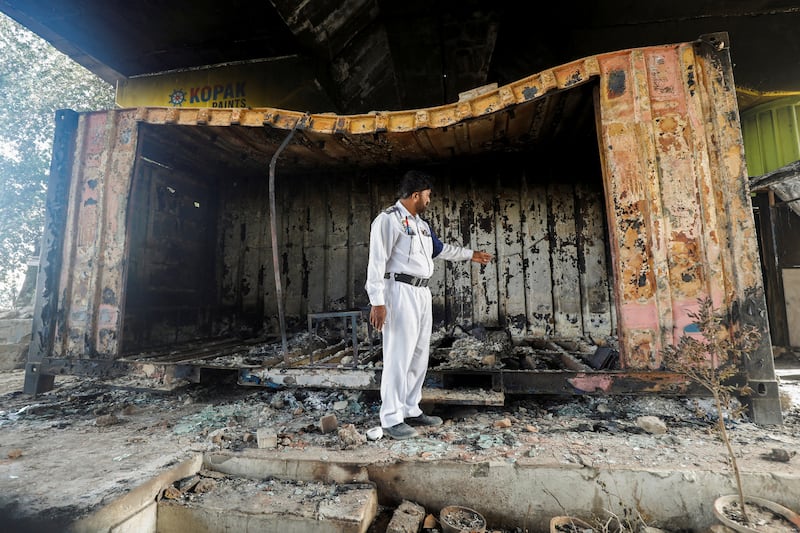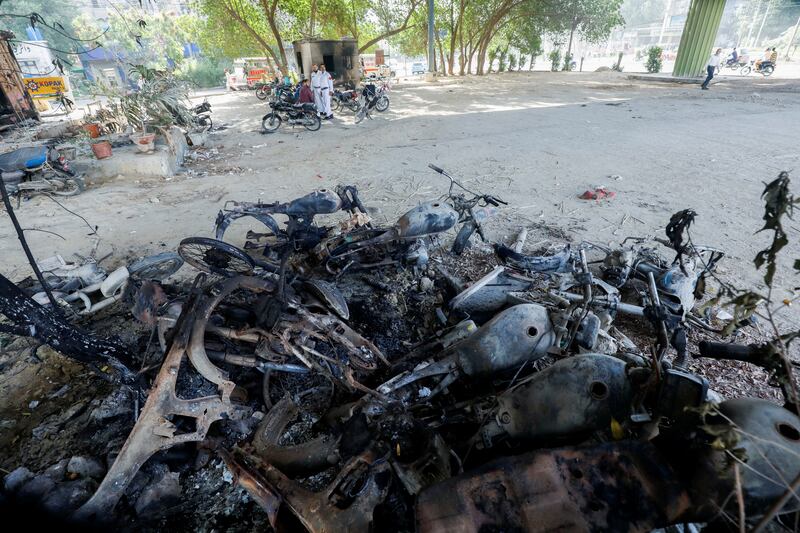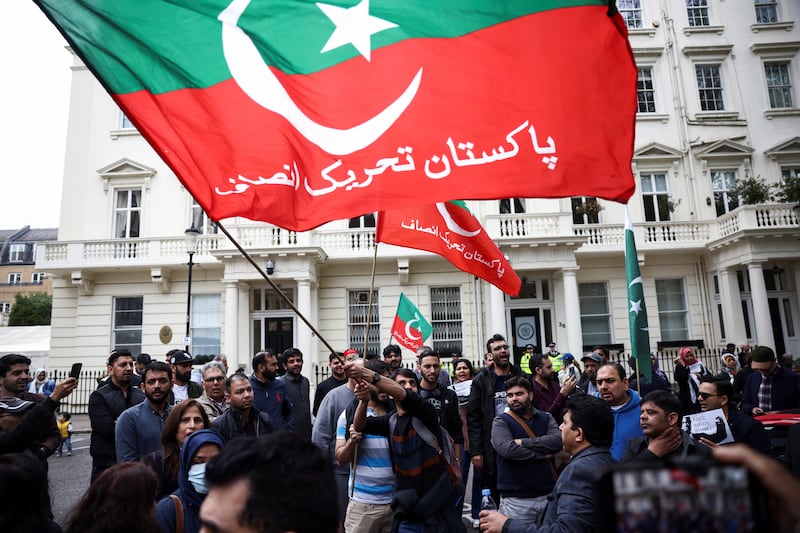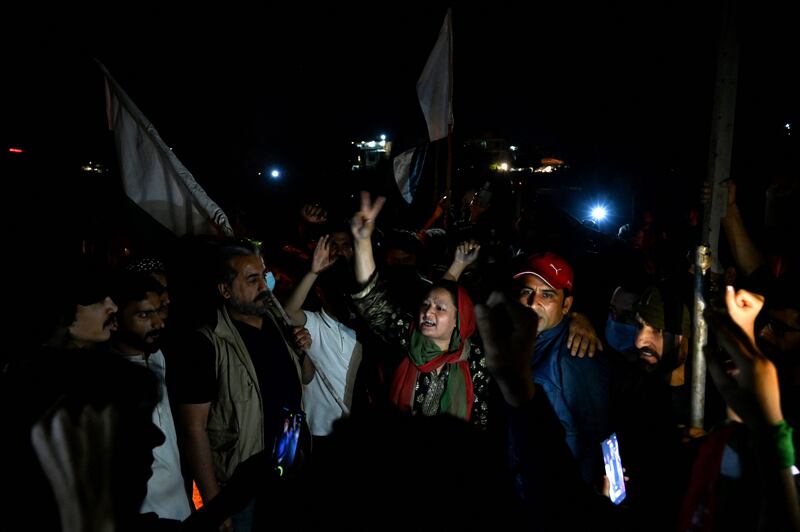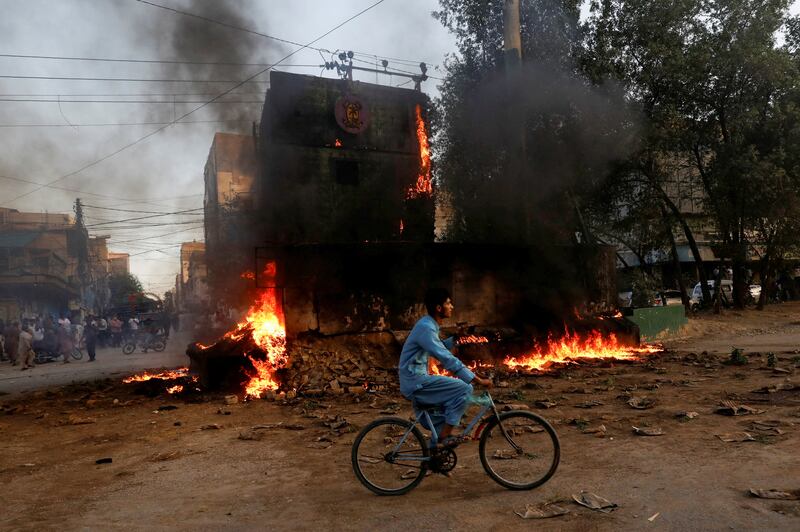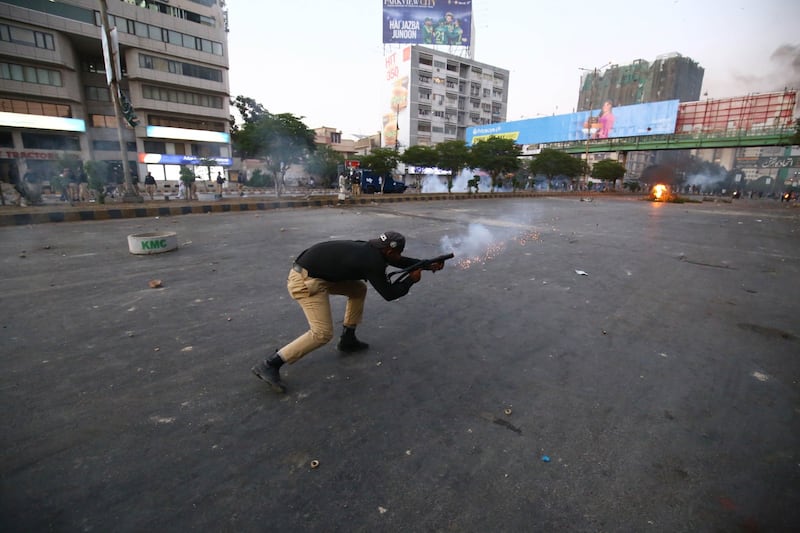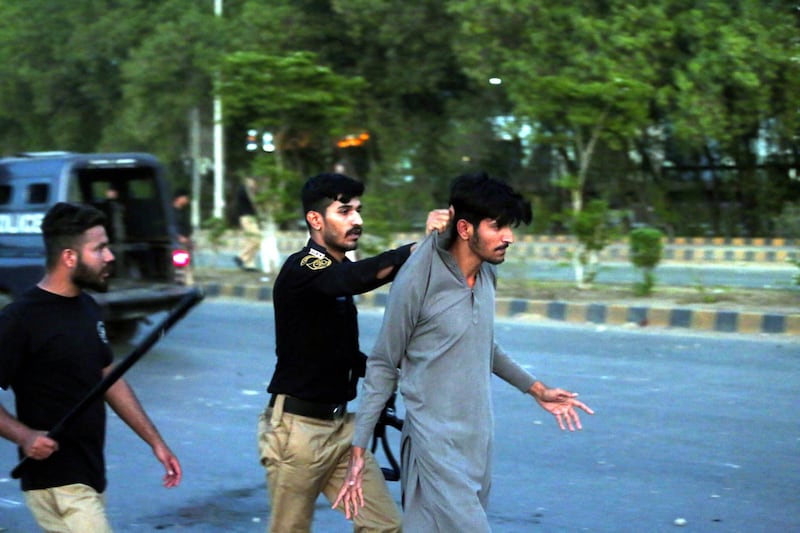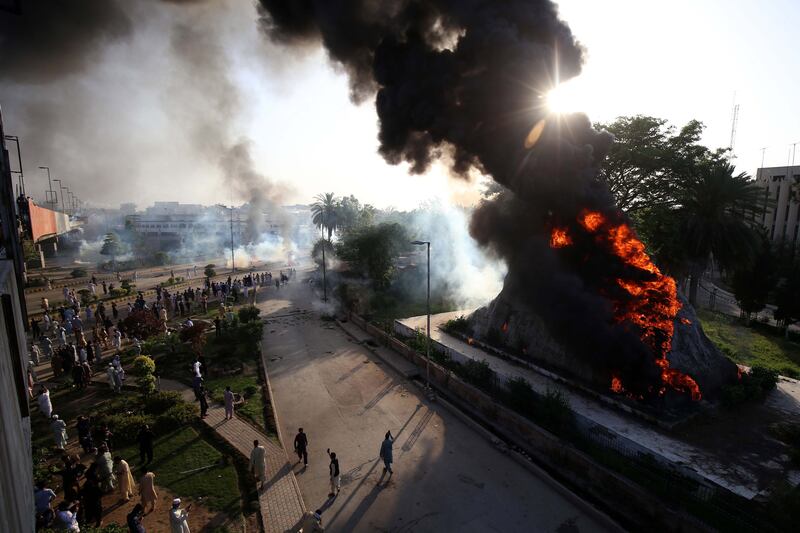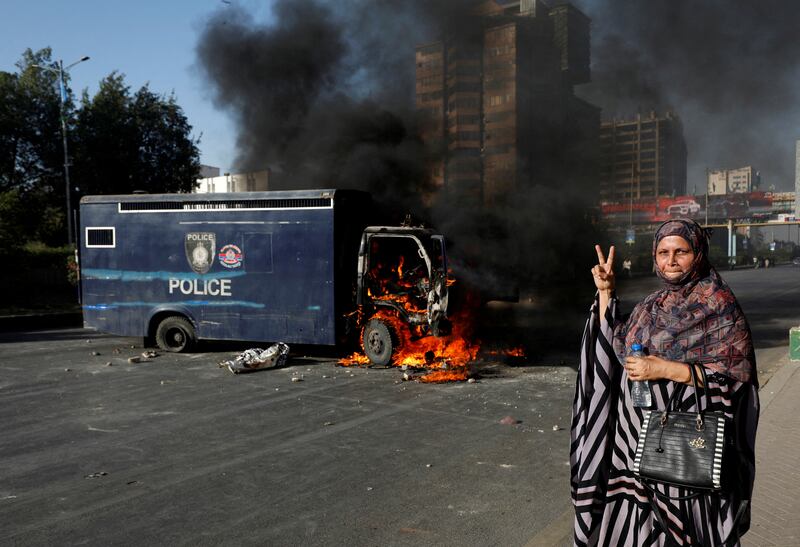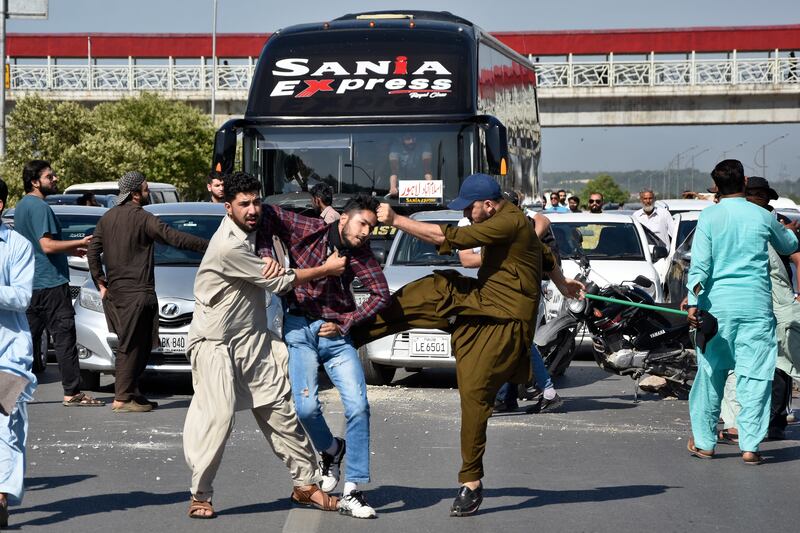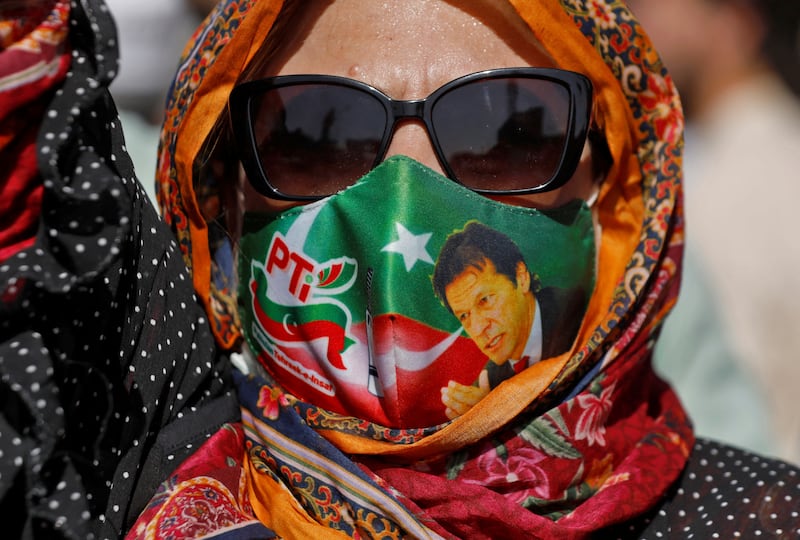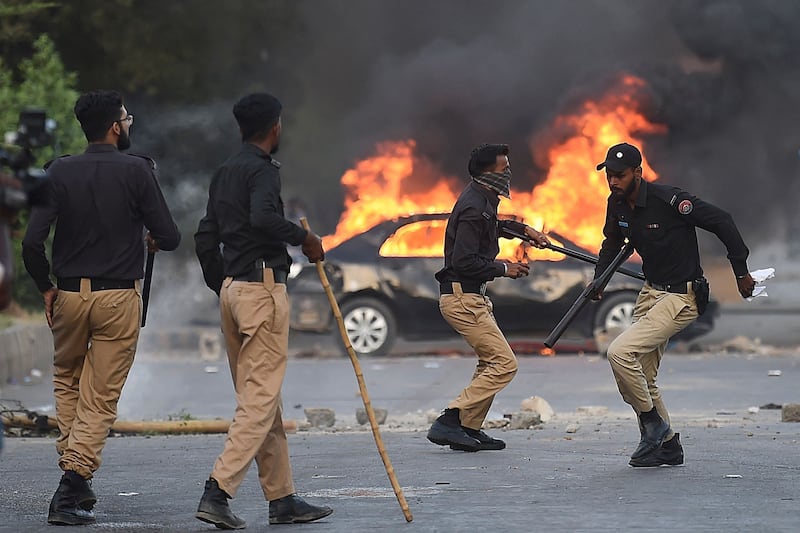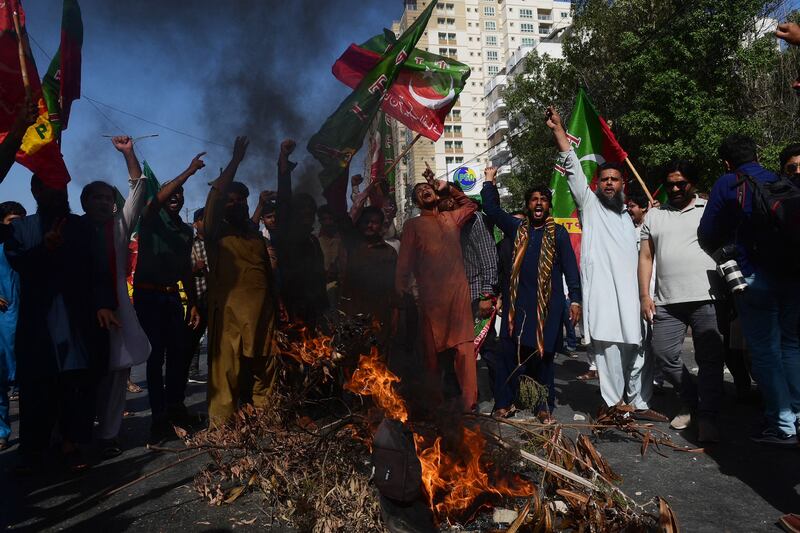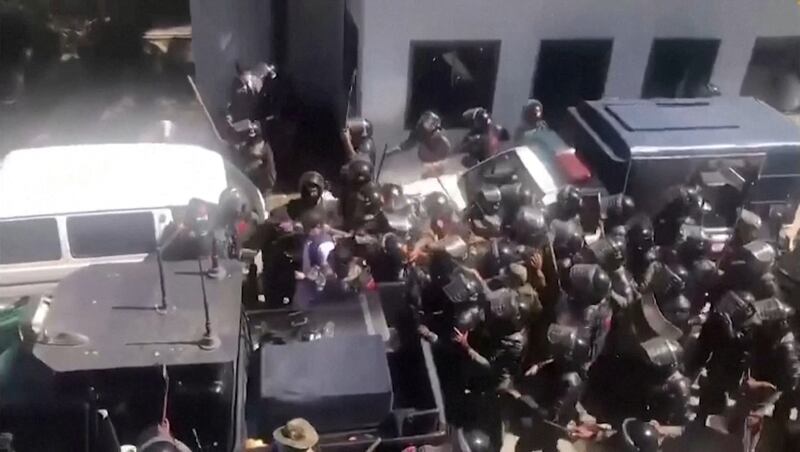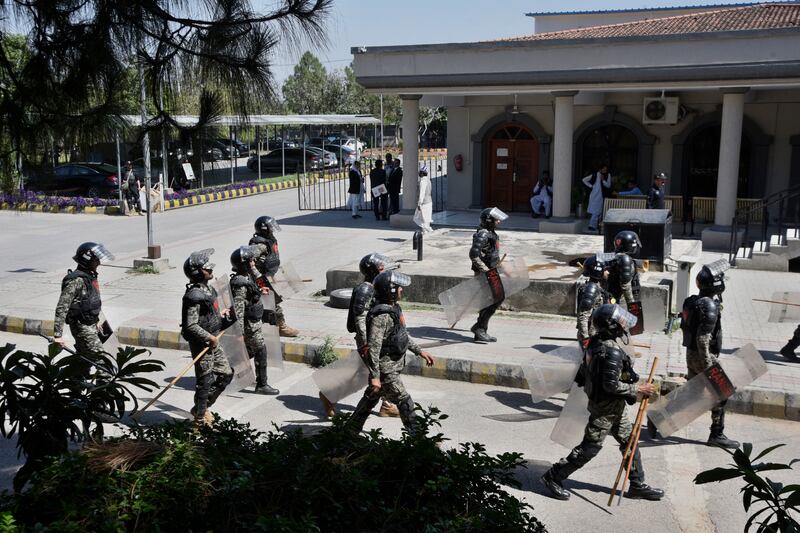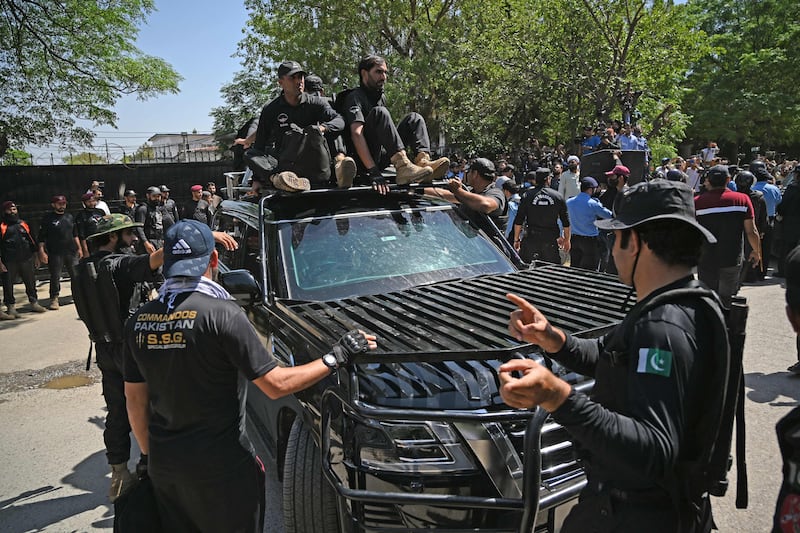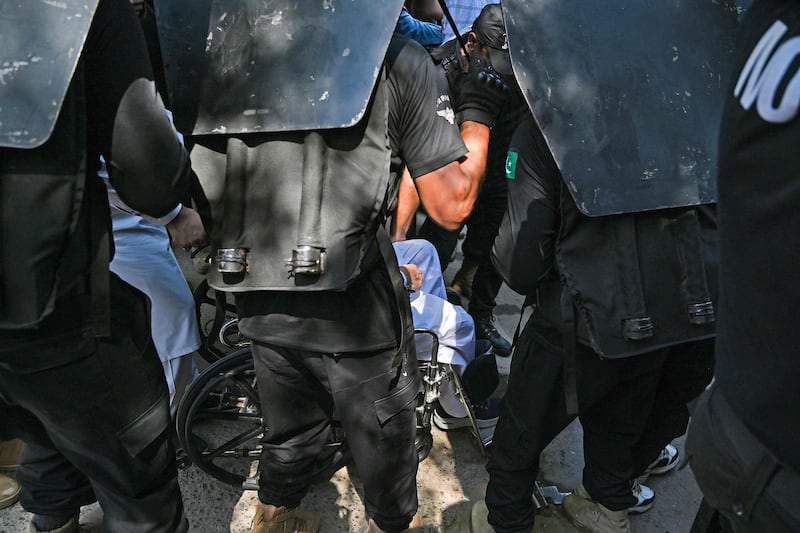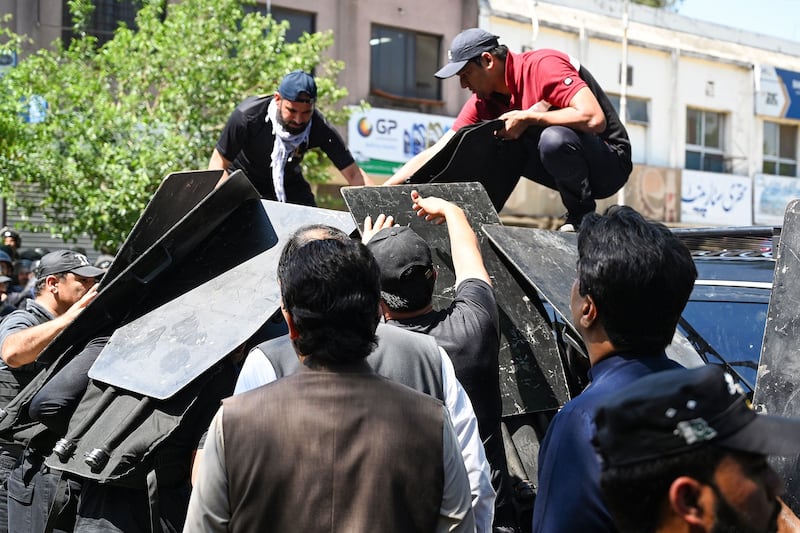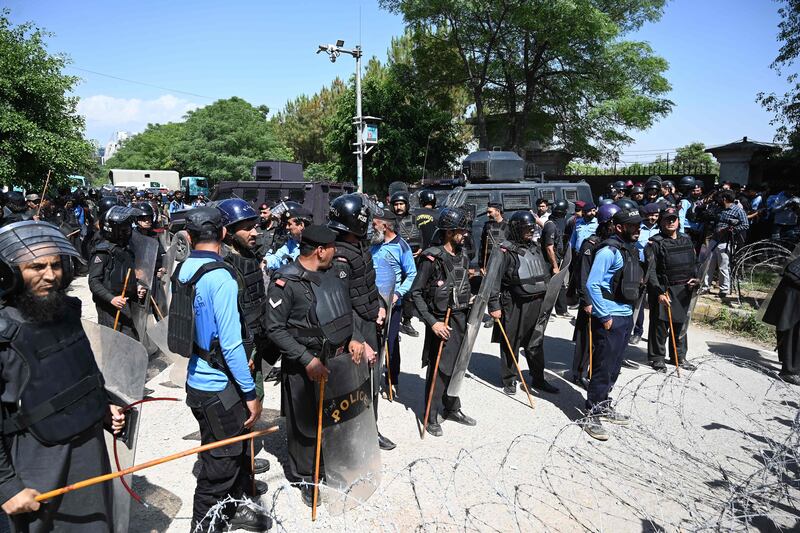Students, businessmen and delivery workers are among millions of people affected by four days of internet shutdown imposed in Pakistan because of political violence.
Internet services were cut off after the arrest of former prime minister Imran Khan on Tuesday, which sparked violent protests and arson attacks across the country. Mr Khan was granted two weeks' bail on Friday as his supporters planned further demonstrations.
Interior Minister Rana Sanaullah said the internet ban would continue until all the instigators and perpetrators of the violence had been arrested.
Speaking to the Geo News channel, Mr Sanaullah said he would seek the prime minister’s advice if the situation regarding Mr Khan persisted beyond May 17.
The decision to suspend mobile broadband to the country’s 125 million subscribers and block access to social media apps has caused widespread frustration and inconvenience.
""I can't get orders because mobile data isn't working," said Sultan Niaz, 25, a food delivery rider who estimated that the shutdown cost him 9,000 rupees ($30) in lost earnings over three days.
Mr Niaz relies on the WhatsApp messaging service to receive food orders and to track down customers through the main roads, narrow streets and densely populated neighbourhoods of Peshawar. Finding a location in Pakistan's oldest city can be difficult because not every street and structure is properly named or numbered.
Apart from the loss of GPS-based tracking, security forces have blocked roads and intersections in Peshawar and other major cities to deter protesters, meaning Mr Niaz has to use longer alternative routes that consume more fuel for his motorcycle.
"Roadblocks and data outages have ruined my days," he said.
Muhammad Imran, 24, said he was unable to submit his application for a post-graduate course in the UK online and had to travel 136km from Dir to Peshawar to make sure it was received on time.
"Normally, it takes three hours to reach Peshawar, but due to protests and the closure of the main routes, it took me five hours to get there. It was quite disturbing and worrying," he said.
For Asim Khan, who lives in a village in the Upper Dir area of Pakistan's north-western Khyber Pakhtunkhwa province, the internet restrictions have left him feeling cut off from the rest of the country during a significant time.
"We rely on social media for news, but with most social media apps being restricted since Tuesday, we feel disconnected from the events taking place in Islamabad or Peshawar and other provinces," Mr Khan said.
Siraj Udin has a full-time job but also has a side business selling goods through Amazon. Usually he is able to keep an eye on his Amazon business account even while at work, but not since mobile internet services were blocked.
"Normally, I check my Amazon account every two to three hours to see if there are any orders, messages, or comments. However, due to the internet shutdown, I wasn't able to check my account for nine to 10 hours of work," he said.
Human rights organisations criticised the shutdown and called on the government to lift the restrictions immediately.
Human Rights Watch said that besides the adverse effect on businesses, the economy and education, the sweeping measure denied ordinary people access to lifesaving information, interfered with access to health care, and restricted the ability of journalists to upload photos and videos documenting government overreach and abuse.
"The most difficult thing for us was staying in touch with our organisation and collecting data," said Wasim Sajjad, a journalist working with an international news organisation.
Sending images of the protests was also challenging, he told The National.
"After staying for a while and shooting in the protest, I would return and somehow try to connect to a broadband connection which was luckily working to send visuals," he said.
"Going back to the field was also a challenge because the main routes were closed. It was hard to manage, but we did our best to keep updating the office."
He said keeping in touch with his family to assure them he was safe while covering the protests was also difficult.
Aside from causing an information blackout and impeding communication, the shutdown is taking a toll on the struggling economy as the country awaits a $1 billion bail-out from the International Monetary Fund.
According to reports in the Pakistani media, the telecommunication sector has suffered a loss of $2.85 million since Tuesday, while the government has lost nearly $1 million in tax revenue.
As soon as the shutdown was announced on Tuesday, Twitter users began to share ways to bypass the ban and to discuss the most effective VPN services.
According to a post by one user, Zubair Ud Din, Mr Khan and hashtags expressing support for him were among the top trends on Twitter despite the platform being officially blocked in Pakistan.
